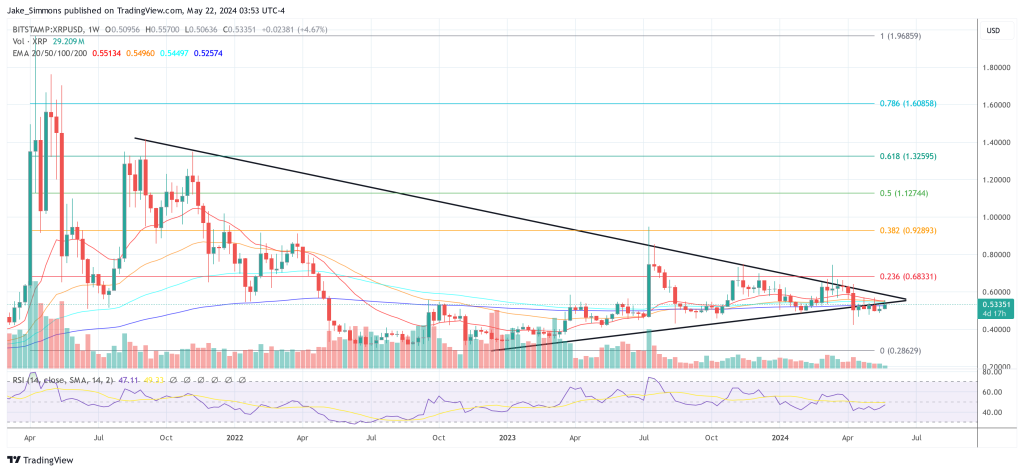Pro-XRP Lawyer Declares ‘Corruption Era’ Amid New Evidence
Pro-XRP lawyer and Republican Party candidate for the Senate Massachusetts, John E. Deaton voiced severe criticisms of what he described as pervasive corruption within federal agencies, including the Federal Reserve (Fed). Deaton, through a post on social media platform X, outlined a grim view of institutional integrity in the United States, coining it the “THE CORRUPTION ERA.”
Why The Pro-XRP Lawyer Is Outraged
“As I’ve said multiple times, we are living through a period of time history books will later describe as: ‘THE CORRUPTION ERA,’” Deaton asserted. He expressed particular disdain for the ‘revolving door’ practice, where federal regulators move into high positions within industries they previously supervised. “The revolving door existing within these agencies must be closed once and for all,” the lawyer who represented 75,000 XRP holders in the Ripple vs. SEC case emphasized.
Deaton announced his intent to propose and support legislation that would enforce a five-year ban preventing federal regulators from transitioning directly into the industries they once regulated. “A person should not be able to leave the FDA and then immediately go work for Pfizer,” Deaton explained, highlighting the urgent need for such reforms to dismantle the entrenched networks of influence and self-interest within government bodies.
The conversation around these concerns stemmed from a statement from Caitlin Long, founder and CEO of Custodia Bank. Today, Long expressed shock over perceived preferential treatment by the Federal Reserve towards another institution, only weeks after a federal judge has rejected Custodia Bank’s application for a Fed master account and membership with the Fed.
Her outrage followed the surprising approval of a master account to Numisma, a Connecticut-based fintech bank formerly known as Currency Reserve, which is notably not FDIC-insured nor federally regulated.
“I AM SPEECHLESS. Is this what it appears to be — special treatment by the Fed for another former insider, just weeks after the Fed’s Inspector General ‘suspended’ its investigation into the Fed’s master account practices?” Long questioned publicly via X. She highlighted the inconsistency of the Fed’s stance in the Custodia Bank case, where it previously described such regulatory structures as unsafe and unsound.
“The Fed’s Custodia denial order went into excruciating detail about why these issues are not curable, but suddenly a bank with the same regulatory structure got a pass by the Fed — and an ex-Fed governor is involved? What the ….,” she stated.
FOX Business journalist Eleanor Terrett shared the scoop: “Connecticut-based fintech bank Numisma (formerly named Currency Reserve) has received conditional approval for access to a Federal Reserve master account, making it the second non-FDIC-insured, non-federally regulated bank to receive one in recent years.”
Terrett pointed out that both banks granted such approval had direct connections to former Federal Reserve officials, raising questions about potential conflicts of interest and the integrity of the approval process.
The denial of a master account to Custodia Bank is a significant setback for the crypto industry, which sees such access as vital to integrating more seamlessly into the broader US financial system. This access would enable crypto-focused banks like Custodia to offer more efficient, potentially less costly banking services by connecting directly to the Federal Reserve’s payment systems.
This ongoing situation casts a shadow over the crypto industry and further hints at an “Operation Choke Point 2.0”, an initiative by the Biden administration to stifle the crypto sector.
At press time, XRP traded $0.53351.

